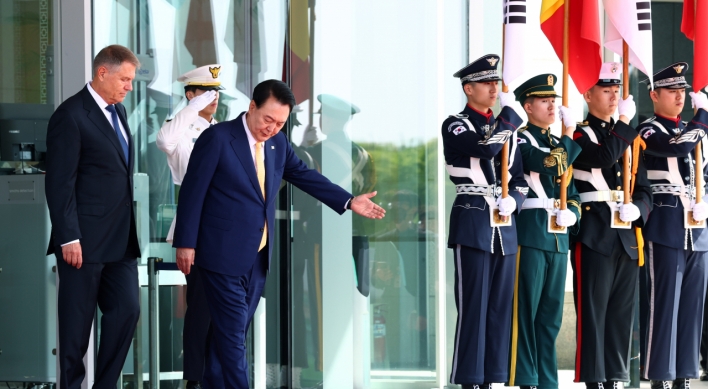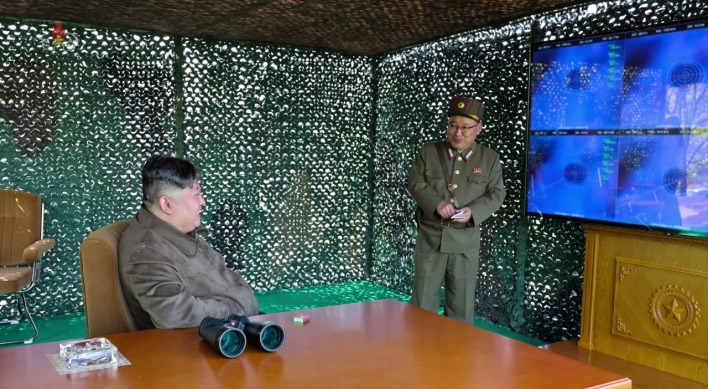[Editorial] SNU election
Candidacy should be open to outside figures
By Korea HeraldPublished : April 23, 2014 - 19:50
Korea’s most recent democratization movement peaked in 1987, when popular protests forced the then-dictatorial regime to revive the direct vote to elect the president.
The wave of electing leaders and representatives by direct vote spread to many institutions, including universities and newspaper companies. Seoul National University was one of them as it began electing its president through a vote of faculty members in 1991. Previously, its chief administrator had been appointed by the government.
The direct vote, however, exposed problems. The most common ones were excessive competition among candidates, fostering of factionalism and abuse of a spoils system ― so much so that now many institutions have abandoned the direct vote.
So did SNU, and the university is now in the middle of electing its new president via a new format. This may be called “indirect election” in that the president is to be elected by an electoral college, which consists mainly of faculty members and administrative staff.
The university already has a short list of five candidates, chosen from an initial 12. The five will be narrowed down to three next week based on the result of a combination of evaluations by a 30-member recommendation panel and a 244-member policy assessment group. Then the board of trustees will nominate one of the three finalists, whose official appointment is subject to an endorsement by the education minister and the president.
The election process, albeit complicated, represents some improvement from the past direct election. Nevertheless, the new election format cannot overcome a fundamental problem: The election is their own party, in that all the candidates are graduates and faculty of the university. All but the 10 “outside figures” in the recommendation panel of the 274 voters belong to the university.
This is no way to choose the leader of the nation’s top university, whose mission is to raise the global competitiveness of the nation’s higher education.
We hear that prestigious foreign universities even hire executive search firms to find the best candidate. In Japan, Kyoto University is severing its 117-year tradition of direct election of its president to open up the post to outside figures.
It should be reminded that SNU still lags behind even some Japanese, Hong Kong and Singaporean universities in global school rankings.
The wave of electing leaders and representatives by direct vote spread to many institutions, including universities and newspaper companies. Seoul National University was one of them as it began electing its president through a vote of faculty members in 1991. Previously, its chief administrator had been appointed by the government.
The direct vote, however, exposed problems. The most common ones were excessive competition among candidates, fostering of factionalism and abuse of a spoils system ― so much so that now many institutions have abandoned the direct vote.
So did SNU, and the university is now in the middle of electing its new president via a new format. This may be called “indirect election” in that the president is to be elected by an electoral college, which consists mainly of faculty members and administrative staff.
The university already has a short list of five candidates, chosen from an initial 12. The five will be narrowed down to three next week based on the result of a combination of evaluations by a 30-member recommendation panel and a 244-member policy assessment group. Then the board of trustees will nominate one of the three finalists, whose official appointment is subject to an endorsement by the education minister and the president.
The election process, albeit complicated, represents some improvement from the past direct election. Nevertheless, the new election format cannot overcome a fundamental problem: The election is their own party, in that all the candidates are graduates and faculty of the university. All but the 10 “outside figures” in the recommendation panel of the 274 voters belong to the university.
This is no way to choose the leader of the nation’s top university, whose mission is to raise the global competitiveness of the nation’s higher education.
We hear that prestigious foreign universities even hire executive search firms to find the best candidate. In Japan, Kyoto University is severing its 117-year tradition of direct election of its president to open up the post to outside figures.
It should be reminded that SNU still lags behind even some Japanese, Hong Kong and Singaporean universities in global school rankings.
-
Articles by Korea Herald



![[AtoZ into Korean mind] Humor in Korea: Navigating the line between what's funny and not](http://res.heraldm.com/phpwas/restmb_idxmake.php?idx=644&simg=/content/image/2024/04/22/20240422050642_0.jpg&u=)



![[Herald Interview] Why Toss invited hackers to penetrate its system](http://res.heraldm.com/phpwas/restmb_idxmake.php?idx=644&simg=/content/image/2024/04/22/20240422050569_0.jpg&u=20240422150649)

![[Graphic News] 77% of young Koreans still financially dependent](http://res.heraldm.com/phpwas/restmb_idxmake.php?idx=644&simg=/content/image/2024/04/22/20240422050762_0.gif&u=)






![[Exclusive] Korean military to ban iPhones over security issues](http://res.heraldm.com/phpwas/restmb_idxmake.php?idx=652&simg=/content/image/2024/04/23/20240423050599_0.jpg&u=)



